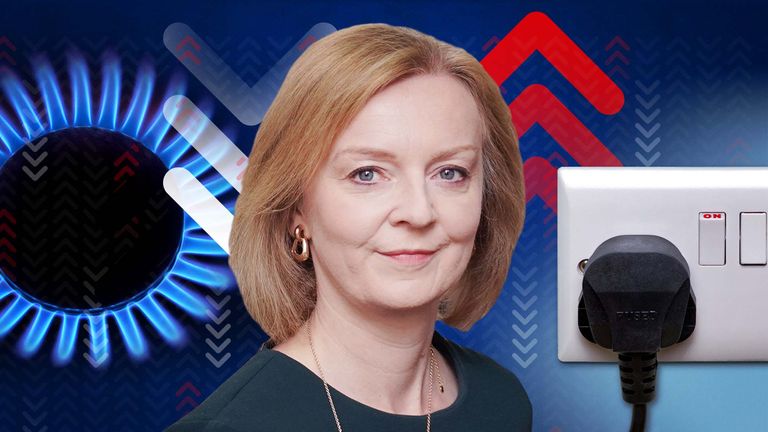Pound slumps to fresh 37-year low as cost of servicing government debt hits August record
The pound has fallen to a fresh 37-year low against the dollar after official figures showed that the cost of servicing UK government debt last month hit a record high for the month of August – before the new PM came to power with promises to splash the cash.
The Office for National Statistics (ONS) said interest payments came in at £8.2bn last month.
That was £1.5bn more than in August 2021 and the highest August figure since monthly records began in 1997 as it included the effect of surging inflation.
Many government bonds are linked to the Retail Prices Index (RPI) measure, which stood at 12.3% that month.
The payments meant that public sector borrowing came in at £11.82bn during August – higher than the £8.5bn forecast by economists.
The figures were released against a backdrop of concern that taxpayer-funded energy aid for households and businesses, coupled with the promise of tax cuts to spur growth, is damaging investor confidence in the UK.
A Reuters poll of bond strategists and economists, carried out last week, showed 55% of those questioned believed there was a high risk that confidence in British assets, including government bonds, would deteriorate sharply in the coming three months.
The pound has lost 7% of its value against the dollar during the past three months alone – one of the worst performers of 10 major currencies.
Sterling was trading at its lowest level against the dollar since 1985 early on Tuesday at $1.1349.
While the bulk of the currency’s decline this year can be explained by the global rush towards the dollar in times of great economic uncertainty, PM Liz Truss’s plan to subsidise energy bills alone is tipped to come in around the £150bn mark.
Rabobank strategist Bas Van Geffen said of the UK’s public finances: “Trust is fleeting… and Truss would be wise to reassure markets that she has a plan to pay for these expenditures.”
Chancellor Kwasi Kwarteng, who is expected to outline a mini-budget dubbed “The Growth Plan” on Friday, has insisted that Britain has more room to borrow than other countries as they have a higher share of public debt to economic output.
The government has argued that kick-starting growth is the best way to get stronger tax revenues.
Mr Kwarteng said in reaction to the public borrowing figures: “Our priority is to grow the economy and improve living standards for everyone – with strong economic growth and sustainable public finances going hand in hand.
“As chancellor, I have pledged to get debt down in the medium term. However, in the face of a major economic shock, it is absolutely right that the government takes action now to help families and businesses, just as we did during the pandemic.”
For all the latest business News Click Here


